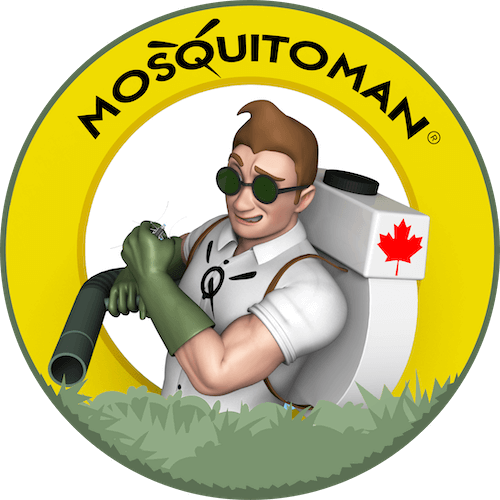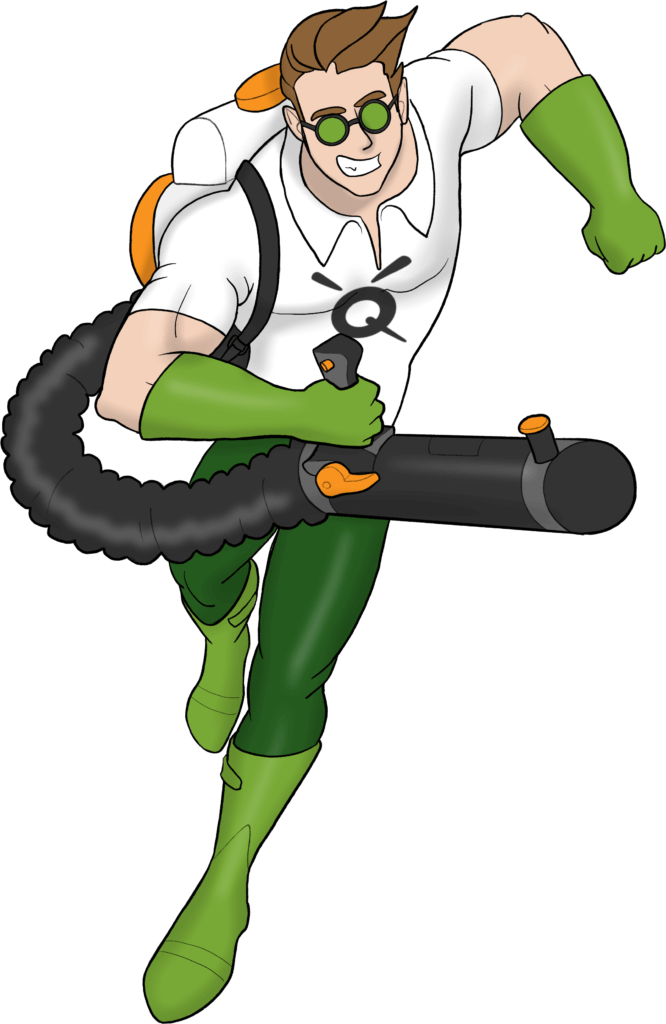Professional Wasp Control and Extermination
Trust Mosquito Man for professional wasp control and extermination, featuring solutions and barriers to keep your property safe from wasps and hornets. Also, learn about the DIY WaspShield. Visit our pest control Canada website.
Our Wasp Control & Removal Service
Here in Ontario, queen wasps build their nests in spring. By the end of fall, these colonies reach their maximum size, often housing up to 5000 wasps. So, if you’re dealing with a stinging insect infestation at home, the experts at Mosquito Man can help! We will safely remove hornets, yellow jackets, paper wasps, and other stinging insects without endangering your family or pets. We can also pre-treat your home to discourage these stinging pests from building nests in the first place!
Areas We Serve Wasp Control & Removal
Mosquito Man has been getting rid of wasps and pests in the province of Ontario for the last 6 years! Each city and town is different – we know this, as we have been providing top notch Wasp and Pest Control in Amherstburg, Brampton, Burlington, Caledon, Cambridge, Chatham, Essex, Hamilton, Kingsville, Kitchener, LaSalle, Leamington, London, Markham, Milton, Mississauga, Newmarket, Oakville, Richmond Hill, Sarnia, Stoufville, Tecumseh, Thornhill, Toronto, Vaughan and Waterloo and more!
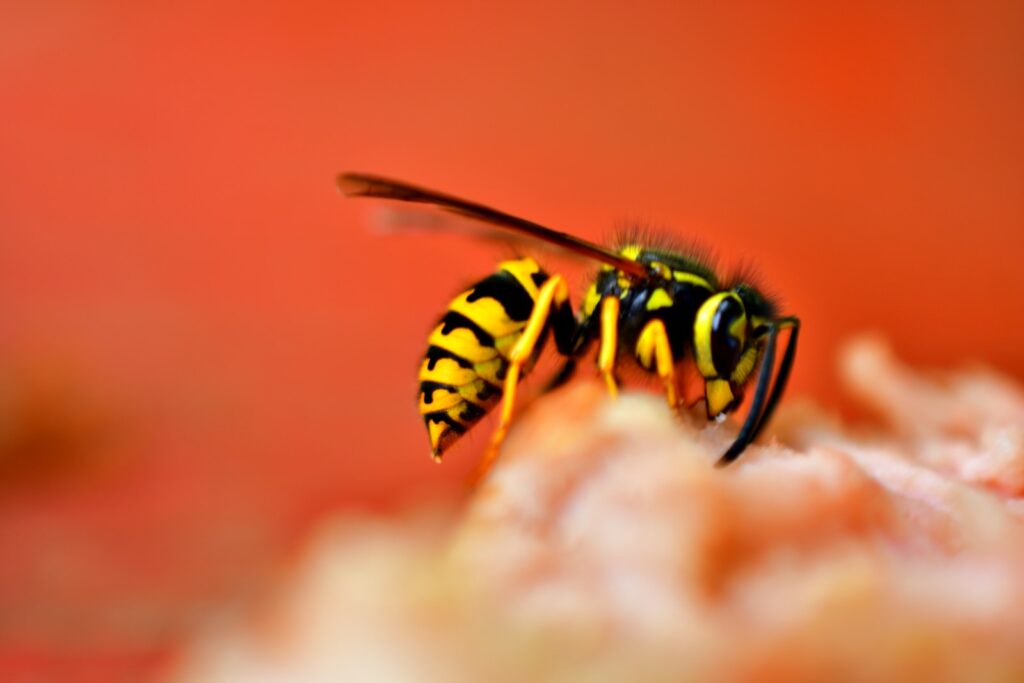
Our Unique Approach To Wasp Control & Removal
1. WASP NEST INSPECTION
2. KILL EMERGING WASPS
3. SPRAY FUTURE NESTING AREAS
We’ll spray the wasp infestation (and surrounding area) with a residual liquid insecticide. This treatment not only controls wasps but also prevents these stinging insects from constructing nests in the future.
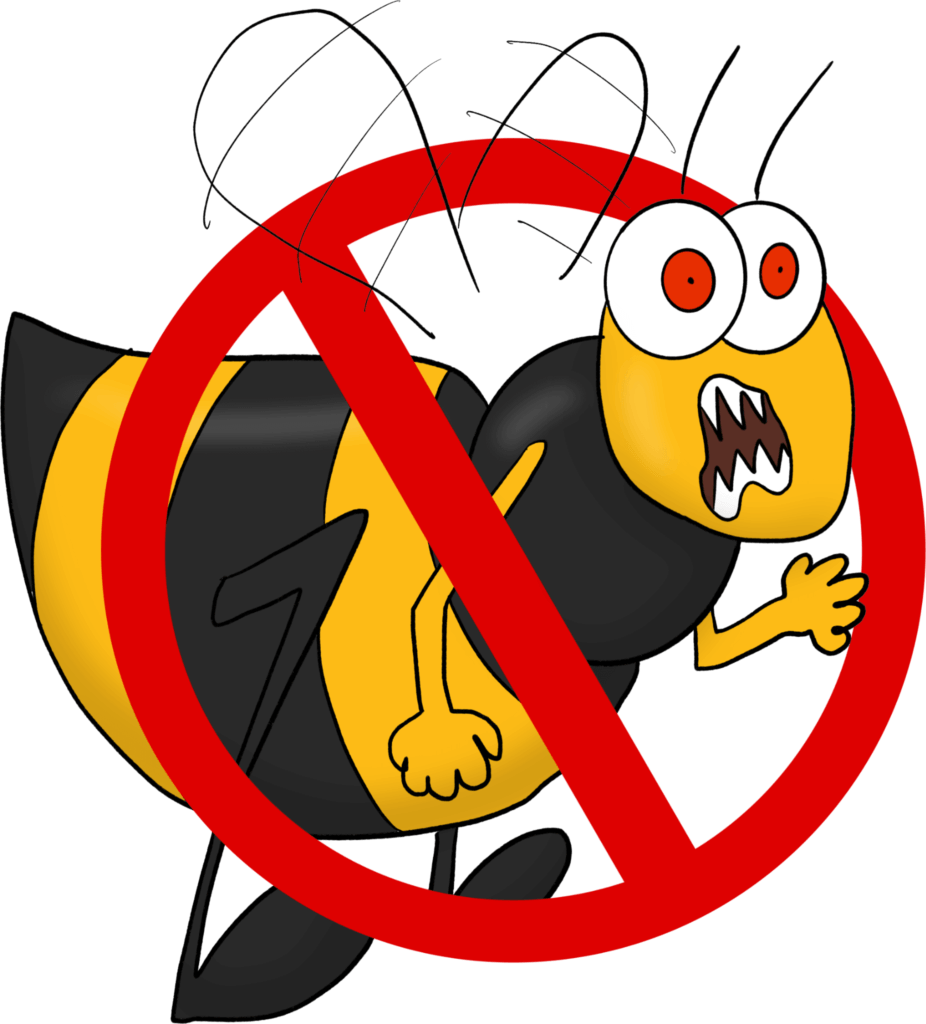
Wasp Control
Starting at
$399/YEAR
Wasp Nest Inspection
Wasp Nest Treatment
SAVE ON OUR MOSQUITO CONTROL PACKAGE
Mosquito Control
Starting at
$123/MO
Wasp Nest Inspection
Wasp Nest Knockdown
Wasp Nest Treatment
or dial 519-9709136

Why Choose Mosquitoman
Value
After your pest inspection, we’ll provide you with a quote that makes sense for your budget and unique needs.
Service
We’re not happy unless you are. So if you’re not satisfied with your most recent service, we’ll make it right.
Trust
We know you are putting a lot of trust in our hands. So we promise to treat you and your home with respect.
Why Choose Mosquitoman

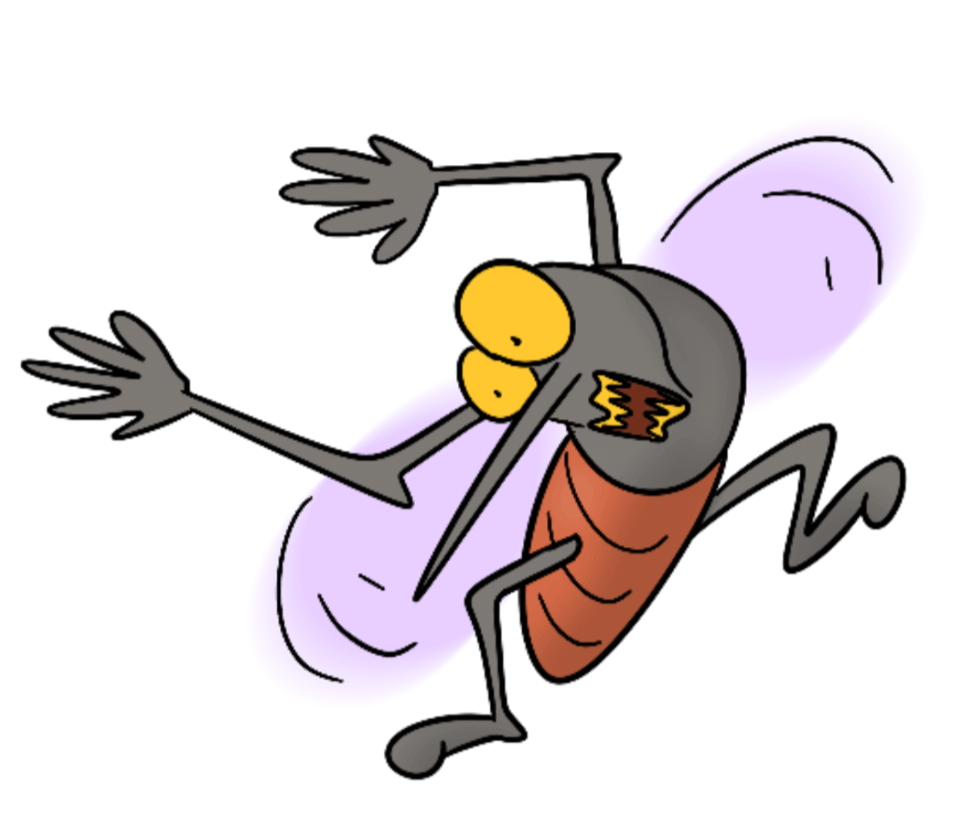
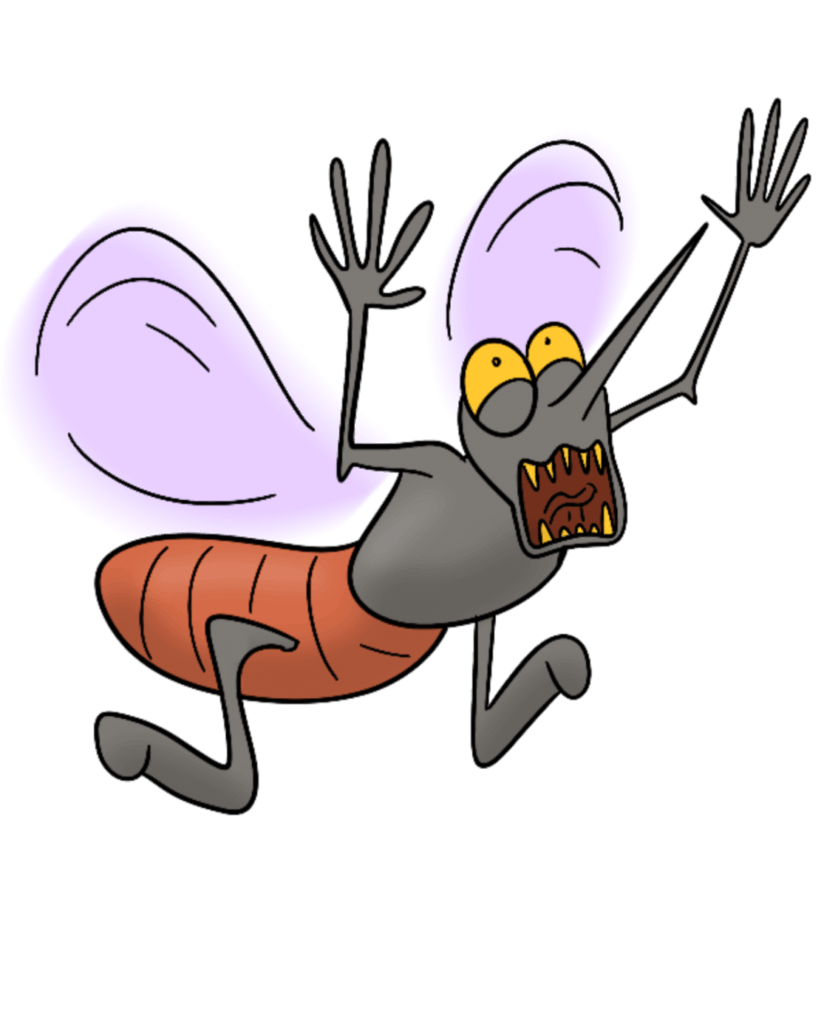
Our Mosquito & Pest Control Services

Yard Protection
From
$450
$
BEST VALUE!
SAVE 20%
Read more
Your Package Includes:
- A Free Larviciding for standing water
- A Free Assessment of the property
- Licensed Technicians
- World Class Customer Service
- A Schedule to service time that is quick and efficient
- Our Super Hero Guarantee — if you’re not satisfied we come back!

Home Protection
From
$300
$
BEST VALUE!
SAVE 20%
Read more
Your Package Includes:
- A Free Larviciding for standing water
- A Free Assessment of the exterior of the home
- Licensed Technicians
- World Class Customer Service
- A Schedule to service time that is quick and efficient
- Our Super Hero Guarantee — if you’re not satisfied we come back!

Full Protection (Yard + Home)
From
$600
$
BEST VALUE!
SAVE 20%
Read more
Your Package Includes:
- Free Larviciding for standing water
- A Free Assessment of the yard and exterior of the home
- Licensed Technicians
- World Class Customer Service
- A Schedule to service time that is quick and efficient
- Our Super Hero Guarantee — if you’re not satisfied we come back!
Frequently Asked Questions
Yes! For roughly 24 hours, you will see foraging wasps return to their nest, which is no longer there. They may be irritated, so we recommend staying away from this area until there are no more stinging insects. To schedule your wasp nest removal.
We know how scary stumbling upon a wasp nest is. This is especially true if you or a loved one are allergic to wasp stings.

Client Feedback
Other Services
Understanding Wasp Behaviour
What Are the Common Types of Wasps in Canada?
In Canada, you will find several types of common wasps. Species like Yellow Jackets, Hornets, and the European Paper Wasp are prevalent. Yellow Jackets have yellow and black stripes making them easy to spot. Hornets are larger and darker. The European Paper Wasp has a slender body and reddish-brown colour.
Differences Between Wasps and Hornets
Wasps and hornets belong to the same insect family but differ in behaviour and appearance. Hornets are larger and more robust compared to wasps. Wasps can be aggressive when threatened, but hornets are even more defensive around their nests. Both species help control pest populations in the ecosystem.
Where Do Wasps Typically Build Their Nests?
Wasps build nests in sheltered locations. Common spots include under eaves, inside wall cavities, or in trees. The European Paper Wasp prefers open structures, making nests that look like paper combs. Knowing their nesting habits is useful for home improvement efforts to prevent or remove unwanted nests.
Nesting Habits and Preferred Locations
Different species of wasps have different nesting habits. Yellow Jackets build nests underground or in hidden cavities. Hornets prefer higher spots like tree branches or rooftops. For home improvement, regularly check these areas to avoid wasp infestations.
How Do Wasps Interact With Their Environment?
Wasps play an important role in the ecosystem. They act as pollinators, helping plants reproduce. They also prey on pests like caterpillars and flies. Knowing about wasp behaviour helps us see their positive impact on the environment.
The Role of Wasps in the Ecosystem
Wasps are crucial to the ecosystem. As pollinators, they help various plant species grow. Their predatory nature keeps insect populations in check, creating a balanced environment. Learning about the life cycle of wasps helps us understand their importance and how we can coexist with them.
These insights into wasp behaviour and their ecological impact can assist homeowners and DIY enthusiasts in managing and appreciating these insects more effectively. For further assistance on wasp control solutions, consider reaching out to Mosquito Man.
Steps for Effective Wasp Control
How Can You Identify a Wasp Infestation Early?
Spotting a wasp infestation early is key for good pest control. Check your home and yard for nests, which can be found under eaves, in trees, or in attics. Wasps often build small, papery nests and are typical household pests. If you see more wasps than usual around your home, there might be a nest nearby. Regular inspections help catch these signs early and stop the problem before it grows.
What Are the Most Effective DIY Methods for Wasp Control?
There are several ways to handle wasps yourself safely:
- Natural Wasp Repellents: Use peppermint or clove oil mixed with water to spray and keep wasps away naturally.
- Wasp Traps: Make traps using sugar water in a container to attract and trap wasps.
- Wasp Spray: Use store-bought wasp sprays on nests during dusk or dawn when wasps are less active.
- Safe Wasp Removal: If you need to take down a nest, wear protective gear and be very careful.
DIY wasp control works for small problems, but always stay safe.
When Should You Consider Professional Wasp Removal Services?
Sometimes, getting help from professionals is best for handling wasps. You should call a wasp exterminator if:
- The nest is too big or hard to reach.
- You are allergic to wasp stings and need to avoid any chance of being stung.
- DIY methods haven’t worked, or you want expert help.
Professional wasp removal makes sure nests are gone and won’t come back. While the costs can differ, having experts take care of it is often worth it. If you’re feeling overwhelmed, calling in experts is a smart move.
Safety Concerns and Precautions
What Precautions Should You Take When Dealing With Wasps?
When dealing with wasps, follow protective measures to stay safe. Wear long sleeves, gloves, and a hat to shield yourself from stings. Protective clothing serves as a barrier between you and the insects. Before approaching a nest, identify a safe escape route in case the wasps become aggressive. Safe wasp removal means knowing when to call professionals, especially if the nest is large or hard to reach. Handling wasps requires caution and following wasp control tips to reduce risk.
How Can You Avoid Wasp Stings and Allergic Reactions?
To avoid wasp stings and allergic reactions, stay calm if a wasp comes near you; sudden movements can provoke an attack. Recognize symptoms of allergic reactions, like swelling, hives, or trouble breathing. First aid tips include washing the sting area with soap and water and using a cold pack to reduce swelling. In severe cases, like during an anaphylactic reaction, get emergency services immediately. Carrying an epinephrine injector can be lifesaving for those with allergies. Preventative measures also involve avoiding known wasp areas and wearing light-colored clothes that don’t attract wasps.
Are There Eco-Friendly Alternatives for Wasp Control?
Eco-friendly alternatives for wasp control are great for managing these insects while protecting the environment. Natural repellents like peppermint or eucalyptus oils work well to deter wasps without chemicals. Preventive strategies, such as sealing entry points around your home, lower the chance of nests forming. Organic wasp control methods focus on keeping beneficial insects safe, which are important for the ecosystem. Chemical-free and green alternatives stress the importance of eco-conscious methods for sustainable pest control. By choosing these options, homeowners can practice responsible wasp management that aligns with environmental values.
Tools and Products for Wasp Management
What Are the Best Products Available for Wasp Control?
When managing wasps, choosing the right wasp control products is vital. There are several solutions like insect traps, wasp sprays, and wasp killers. These products aim to target wasps specifically and help keep them away from your home.
- Wasp Sprays: These are popular among homeowners. They allow you to spray from a distance, which keeps you safer. Look for eco-friendly options that don’t harm other animals.
- Wasp Traps: These devices lure wasps with bait and trap them, stopping more from coming. They work well when placed where wasps are most active.
- Insect Traps: General insect traps can also help if wasps are part of a bigger pest problem. Pick traps that mention wasp control for the best results.
Choosing the best wasp control methods depends on how bad the infestation is and whether you prefer eco-friendly or chemical solutions.
How to Choose the Right Wasp Spray or Trap?
Picking the right wasp spray or trap depends on your specific pest management needs. Here’s a simple guide:
- Check the Infestation: Find out how big and where the wasp nest is. Bigger problems might need stronger wasp control products, while smaller ones might only need simple repellents.
- Try DIY Wasp Control: If you want to handle it yourself, natural wasp repellents or deterrents can be a non-toxic option.
- Think About Eco-Friendly Choices: For those who care about the environment, natural wasp repellents offer a safe choice without harsh chemicals.
- Look at Different Wasp Treatments: There are many types of wasp treatments available. Read reviews and pick one that has been proven effective.
Always follow the instructions on the product for the best and safest results.
Can Insect Zappers Help in Controlling Wasps?
Insect zappers can be part of pest control, but they usually work better for insects like mosquitoes than for wasps. Here’s how they fit into wasp management:
- Insect Zappers: These devices use light to attract insects and then electrocute them. They might catch some wasps but aren’t specialized for this task.
- Wasp Proofing: To protect your home, focus on wasp-proofing steps like sealing entry points and removing things that attract wasps.
- Safe Wasp Removal: Safety should always come first. For large nests, it might be best to call professional, eco-friendly wasp control services.
While zappers can catch some wasps, using them along with wasp-specific traps and sprays usually works best.
Seasonal Wasp Control Tips
How Does Seasonality Affect Wasp Activity?
Understanding wasp lifecycles is important for effective pest control. Wasps become more active in warmer months like spring and summer as they build nests and search for food. During these times, their activity levels rise. This makes it necessary to use seasonal wasp control methods. By knowing how wasps behave during different seasons, you can deal with problems before they get worse.
What Preparations Can You Make for Spring and Summer?
Spring and summer are the best times to take steps to prevent wasps. Start by checking your garden and home for early signs of nests. Use wasp-proofing methods, such as sealing cracks and making sure windows and screens are in good shape. Think about using wasp deterrents like natural remedies or plants that keep wasps away. These protective actions can greatly lower the chance of wasp problems during peak season.
How to Maintain a Wasp-Free Environment Year-Round?
To keep a wasp-free environment all year, use long-term strategies that focus on prevention and eco-friendly pest management. Make home improvements like installing screens and sealing entry points. Use chemical-free wasp control methods, such as organic repellents that are safe for your family and the environment. Regular maintenance and proactive management are key to keeping wasps away throughout the year.
By understanding wasp behaviors and taking preventive actions, you can enjoy a comfortable and safe home. For more pest control solutions, trust Mosquito Man to provide effective and eco-friendly options for your needs.
—
FAQs:
—
Question: How can I identify a wasp nest?
To find a wasp nest, look for a paper-like structure in spots like eaves, attics, and garages. Nests can be different sizes and are often near where people are.
Question: What should I do if I get stung by a wasp?
If you get stung by a wasp, clean the sting with soap and water. Apply ice to reduce swelling and take an antihistamine if needed. Get medical help if you have trouble breathing or other severe symptoms.
Question: Are there eco-friendly wasp control methods?
Yes, you can use organic sprays, traps, and essential oils like citronella. These methods are safe for your family and the environment.
Question: Can wasps pose a fire hazard?
Yes, wasps can build nests in electrical equipment, which can cause fires. Regular checks and maintenance can prevent this.
Question: What safety tips should I follow during wasp removal?
Wear protective clothing and avoid swatting at wasps. Use targeted wasp control methods. For large nests, it’s best to call professionals who offer emergency services.
Question: How much does professional wasp removal cost?
The cost can vary based on the size and complexity of the nest. Contact your local pest control office for an accurate quote.
Question: Who provides 24/7 support for wasp removal?
Many pest control services, like Abell Pest Control and Truly Nolen Canada, offer 24/7 support for urgent wasp removal.
Question: Are there humane ways to relocate wasp nests?
Yes, humane wasp control methods can move nests without harming the wasps. Professionals can safely relocate the nest to a better spot.
—
Bullet Points
—
Key Insights
- Our emergency service offers 24/7 wasp removal support in big cities like Toronto, Vancouver, Calgary, and Edmonton.
- Truly Nolen Canada and your local Abell Pest Control office provide products for wasp control, offering effective solutions for your needs.
- We focus on eco-friendly, chemical-free, and organic wasp control to keep your environment safe.
- Learn to identify and manage wasp nests with our expert tips. We offer seasonal and long-term strategies, including targeted control and humane nest relocation.
- We explain everything from stinging symptoms to wasp control costs, helping you handle wasp-related issues effectively.
- Our products are made to deal with aggressive species like bald-faced hornets and yellowjackets, ensuring your peace of mind.
- Our services include safe nest destruction, pesticide use, and aerosols for fast results.
- Stay informed on wildlife and insect control, and get the latest pest management news, including COVID-19’s impact on pest practices.
- Understand the dietary habits of wasps, like protein and waste preferences, to better manage them around your home.
- Use our resources, from detailed guides to emergency services, for effective wasp control and safety for your community.

